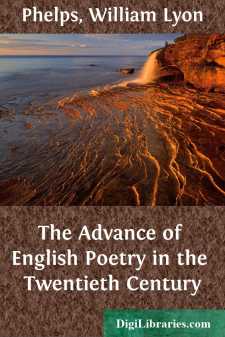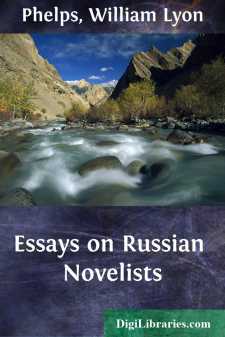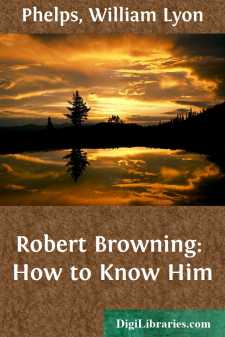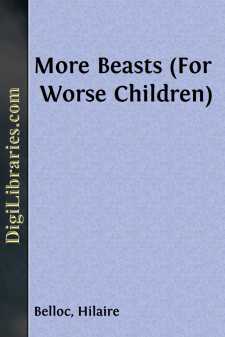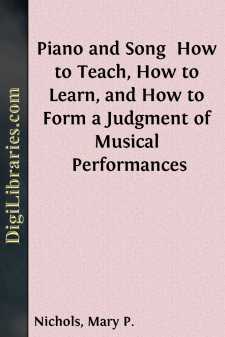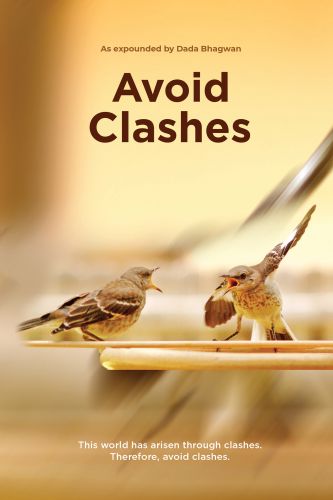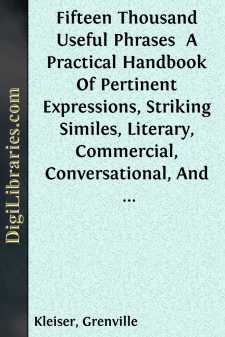Categories
- Antiques & Collectibles 13
- Architecture 36
- Art 48
- Bibles 22
- Biography & Autobiography 813
- Body, Mind & Spirit 142
- Business & Economics 28
- Children's Books 17
- Children's Fiction 14
- Computers 4
- Cooking 94
- Crafts & Hobbies 4
- Drama 346
- Education 46
- Family & Relationships 57
- Fiction 11829
- Games 19
- Gardening 17
- Health & Fitness 34
- History 1377
- House & Home 1
- Humor 147
- Juvenile Fiction 1873
- Juvenile Nonfiction 202
- Language Arts & Disciplines 88
- Law 16
- Literary Collections 686
- Literary Criticism 179
- Mathematics 13
- Medical 41
- Music 40
- Nature 179
- Non-Classifiable 1768
- Performing Arts 7
- Periodicals 1453
- Philosophy 64
- Photography 2
- Poetry 896
- Political Science 203
- Psychology 42
- Reference 154
- Religion 513
- Science 126
- Self-Help 84
- Social Science 81
- Sports & Recreation 34
- Study Aids 3
- Technology & Engineering 59
- Transportation 23
- Travel 463
- True Crime 29
The Advance of English Poetry in the Twentieth Century
Description:
Excerpt
CHAPTER I
SOME CONTRASTS—HENLEY, THOMPSON, HARDY, KIPLING
Meaning of the word "advance"—the present widespread interest in poetry—the spiritual warfare—Henley and Thompson—Thomas Hardy a prophet in literature—The Dynasts—his atheism—his lyrical power—Kipling the Victorian—his future possibilities—Robert Bridges—Robert W. Service.
Although English poetry of the twentieth century seems inferior to the poetry of the Victorian epoch, for in England there is no one equal to Tennyson or Browning, and in America no one equal to Poe, Emerson, or Whitman, still it may fairly be said that we can discern an advance in English poetry not wholly to be measured either by the calendar and the clock, or by sheer beauty of expression. I should not like to say that Joseph Conrad is a greater writer than Walter Scott; and yet in The Nigger of the Narcissus there is an intellectual sincerity, a profound psychological analysis, a resolute intention to discover and to reveal the final truth concerning the children of the sea, that one would hardly expect to find in the works of the wonderful Wizard. Shakespeare was surely a greater poet than Wordsworth; but the man of the Lakes, with the rich inheritance of two centuries, had a capital of thought unpossessed by the great dramatist, which, invested by his own genius, enabled him to draw returns from nature undreamed of by his mighty predecessor. Wordsworth was not great enough to have written King Lear; and Shakespeare was not late enough to have written Tintern Abbey. Every poet lives in his own time, has a share in its scientific and philosophical advance, and his individuality is coloured by his experience. Even if he take a Greek myth for a subject, he will regard it and treat it in the light of the day when he sits down at his desk, and addresses himself to the task of composition. It is absurd to call the Victorians old-fashioned or out of date; they were as intensely modern as we, only their modernity is naturally not ours.
A great work of art is never old-fashioned; because it expresses in final form some truth about human nature, and human nature never changes—in comparison with its primal elements, the mountains are ephemeral. A drama dealing with the impalpable human soul is more likely to stay true than a treatise on geology. This is the notable advantage that works of art have over works of science, the advantage of being and remaining true. No matter how important the contribution of scientific books, they are alloyed with inevitable error, and after the death of their authors must be constantly revised by lesser men, improved by smaller minds; whereas the masterpieces of poetry, drama and fiction cannot be revised, because they are always true. The latest edition of a work of science is the most valuable; of literature, the earliest.
Apart from the natural and inevitable advance in poetry that every year witnesses, we are living in an age characterized both in England and in America by a remarkable advance in poetry as a vital influence....


